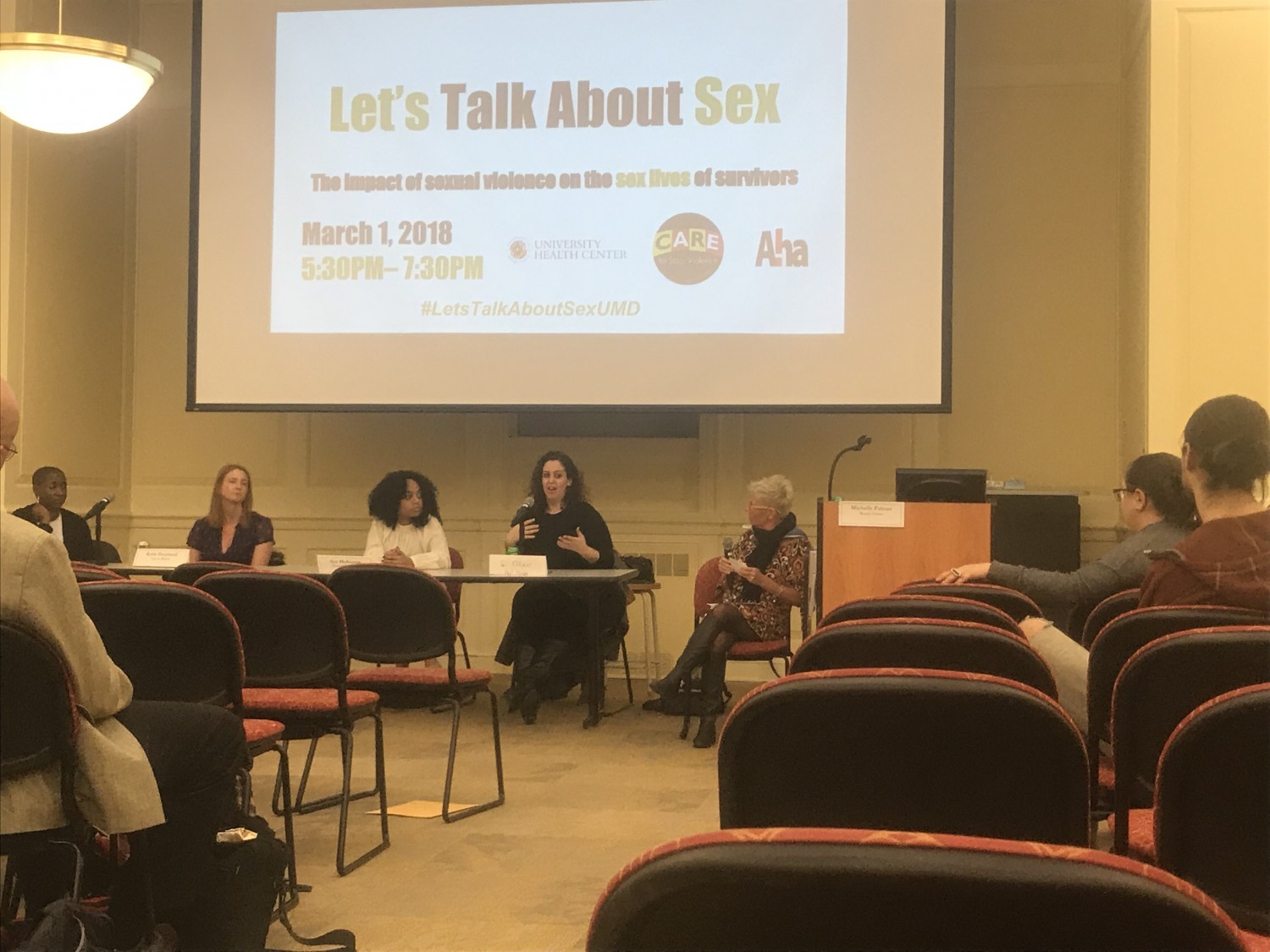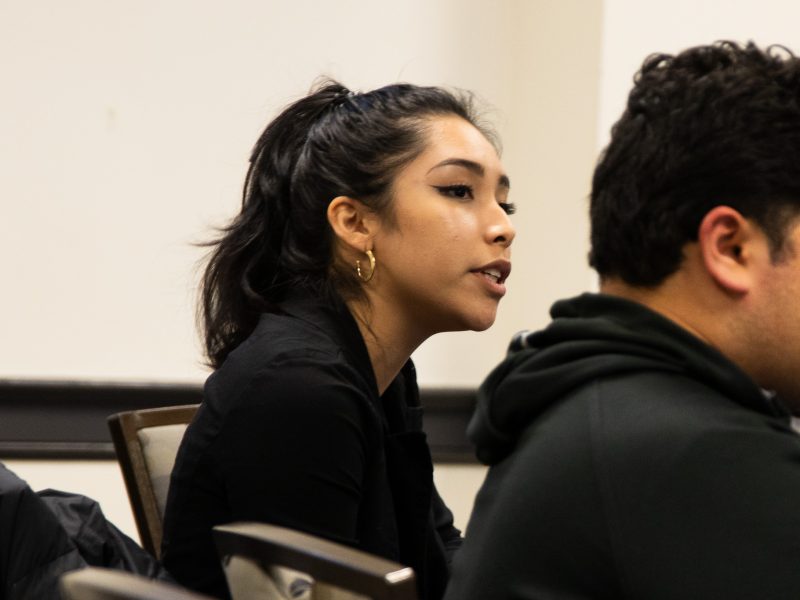By Jackie Chase
For The Diamondback
In hopes to provide University of Maryland students with an opportunity to understand the effects of sexual violence on victims, CARE to Stop Violence hosted an event Thursday to further discuss these impacts.
The event, Let’s Talk About Sex, consisted of a panel discussion led by representatives of various support organizations including Whitman-Walker Health, Aha! Moment and Wendt Center.
[Read more: UMD found 7 students responsible for Sexual Assault 1 last year. Only 4 were expelled.]
The panel discussion primarily focused on discussing how sexual assault affects the body image and relationships of victims, which can lead to a loss of sexual interest, hyper-sexuality and self-harming.
“There are many different effects that can be experienced by survivors, but we wanted to focus in on survivors’ sex lives and how this can affect their body image,” said Emily Biery, a program management specialist with CARE. “We also hope that students connect with CARE and other resources, and they can learn how to reach out for help, bring education resources to their peers and act to prevent sexual and relationship violence.”
[Read more: UMD’s SGA backs state bills to prevent sexual assault and conversion therapy]
Tali Sadan Elitzur, founder of Aha! Moment, also helped coordinate the event. Other sponsors included the University Health Center, Break the Cycle, the Wendt Center and End Rape on Campus, Biery said.
“As we expand our education and outreach efforts on campus, more people may become aware of our services and seek them out or tell their friends about them,” Biery said. “We want to encourage people to reach out, so it’s good when people feel more comfortable asking for help.”
The panel also discussed the importance of confirming that both parties are present and comfortable in the situation as a part of consent. Shane’a Thomas, a panelist and representative of Whitman-Walker Health, emphasized the importance of consent.
“‘No’ is a complete sentence,” Thomas said. “When you say no, that’s it, that’s all.”
Michelle Palmer, a representative for the Wendt Center, directed the discussion. She mentioned some victims’ inability to say no or react physically in certain sexual situations as they go into tonic immobility, preventing them from moving.
Panelists also acknowledged the #MeToo movement and the recent influx of celebrity assault accusations. The group said for some it can take years to accept and understand their assault experience.
Panelist Aya Mubaarak discussed the feeling some survivors have when they no longer feel able to say no, as the word was ignored in past experiences.
Panelists encouraged students to seek group therapy and to take time for self-care and self-reflection.
“I thought it was really interesting, I wasn’t sure what it was going to be like, but it was pretty enlightening, they made me think about a lot of stuff that I didn’t really think about before coming here,” said sophomore Jillian Yagoda, an animal sciences major. “I liked how honest everyone was in the panel too. I feel like everyone was really genuine.”
Audience members were also able to anonymously submit questions to the panelists. These questions ranged from how to help friends, to whether to report friends who have harmed you and how to come to terms with these experiences.
“I really appreciated the comment that somebody asked anonymously, I’m assuming it was a man, that we need more men here that I definitely agree with,” said sophomore Gabrielle Knauer, a physiology and neurobiology major. “I looked around and most of the audience was female.”
Organizations such as CARE are available for students to discuss options such as reporting or therapy and are available to go through the process with students, Carly Cottone, an CARE outreach liaison said.
CORRECTION: Due to a reporting error, a previous version of this article referred to the event’s name as “Impact of Sexual Assault on the Sex Lives of Survivors.” The event’s name was “Let’s Talk About Sex.” A previous version of this article also misstated that panelists are sexual assault survivors. This article has been updated.
This story has been updated.



